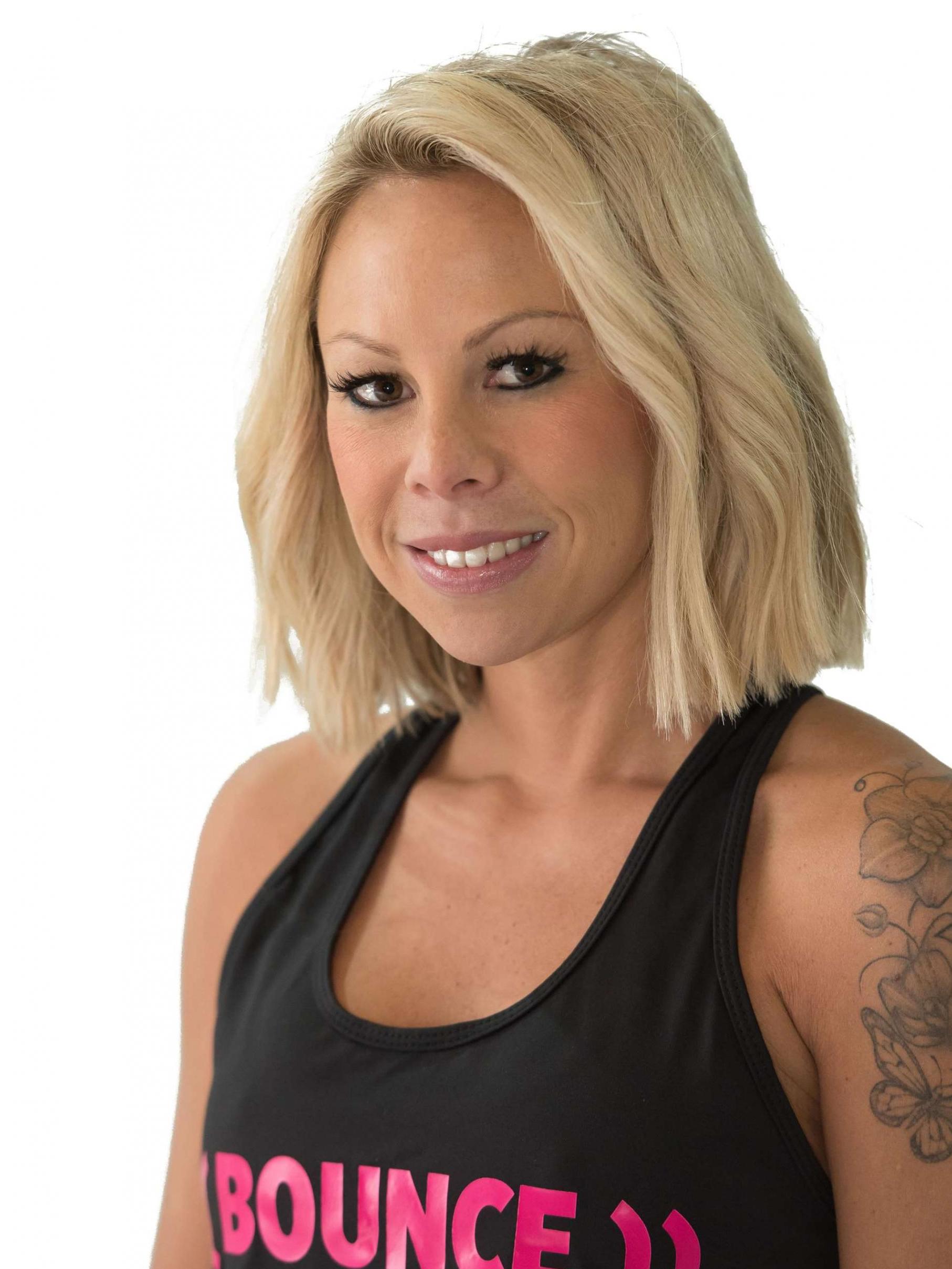The exercise start-up taking personal fitness to new heights
Kimberlee Perry took a successful leap in the dark with mini-trampoline exercise franchise Bounce. She tells Martin Friel about walking away from the corporate life and going digital under lockdown

There is an assumption that business success depends upon a plan. Fail to plan, plan to fail is one of the more tired cliches used to support this.
But achieving success in business can often be no more complicated than stumbling upon an opportunity and working flat out to maximise it.
Take Bounce for example. In 2014, Kimberlee Perry founded a fitness class franchise based on dance routines performed on a mini-trampoline to “banging tunes”.
The concept is really no more complicated than that but in the month before most of the world went on lockdown, Perry and her franchisees managed to pull in 47,000 attendees across 320 locations in the UK, Ireland, Australia and New Zealand.
Which is a pretty impressive statistic, but it’s all the more impressive when you consider it all started from Perry’s disillusionment with a city career and a sense of isolation as a new mother in a new town.
“There was never a plan,” says Perry.
“I was on maternity leave and I didn’t want to go back to my corporate job as I felt I was overlooked for a promotion when all signs were leading towards me getting it.”
She admits that this hit her really hard as for many years work had been everything to her. In many ways it defined her.
That loss of identity alongside leaving her adopted home of London for the more family-friendly surroundings of Essex, convinced the Australian that she had to make a new start. But was unsure how to go about it.
“My interest is in physical activity and a general love for athletics. So, when deciding on my future, I wanted to invest more time in that,” she says.
She decided to retrain as a fitness instructor, but other than getting more teaching certifications, she insists there was no plan beyond running some classes.
“I got some experience teaching classes at the local gym and I hosted an hour’s class at three local gyms. But as a standard fitness instructor, you get paid £10-£15 an hour so I thought I was going to have to go back to a corporate job.”
But it appears this prospect gave her the necessary impetus to try to carve out some kind of niche in a very crowded and competitive fitness sector.

“I asked myself what was going to make me and my fitness class unique. I did some research into the rebounder (mini trampoline) and there was nothing like that around. So, I made up some dance routines on a trampoline,” she says.
“I invited some of the new mums I had met to come and do it in my back garden and I spoke about it like it was a proper thing. I was teaching them like I was teaching it publicly.”
The reaction from her peers was positive, so positive in fact that within six months, she found herself teaching 12 Bounce classes a week in local gyms and community centres. Every time she turned a profit, she bought more trampolines, found a new location and started a new class. It wasn’t long before she realised there was a real business opportunity in this trampoline lark.
“I just started to naturally think I needed some help and I had regulars by that point, so I asked two of them if they wanted to teach some classes,” she says.
It was at this point, says Perry, that she started to consider the risks of branching out: “But I knew I had to capitalise on the popularity so around the time I was training these people, I started to seek out some legal understanding of what I was doing.”
With the help of a specialist lawyer, Perry pulled together a franchise agreement and got to work setting up the business proper.
“I won’t forget that stage – it was a massive learning curve for me but you either get it, or you don’t and let it fall apart,” she says.
That steep learning curve has taken Perry from those initial two franchisees to the 320 she has on her books today but still, she insists, there is no plan. What she does have and what she appears able to infuse in her franchisees, is a huge amount of passion. Not just for business but for the classes themselves.
A key element of that passion is a determination to protect what she believes is the core of Bounce – accessible exercise.
If we hadn’t gone online, there may not have been a future for Bounce, so we had to build a new business model overnight
Back when she was feeling a bit lost during her maternity leave, Perry says she was looking for an exercise outlet but was put off by a lot of the existing options.
“Bounce was born at a time when the fitness industry was very aggressive, things like Bootcamp and Hell Runner.
“It wasn’t appealing and didn’t make me want to exercise.” Instead, she wanted something that focussed on the joy of exercising.
She found it in rebounding but alongside making her exercise classes accessible, she wanted them to fit around her customers’ lives rather than the other way around.
“Bounce is about bringing people together, breaking down barriers to exercise for parents and encouraging them to bring their children along to the studio,” she says.
The social benefits of a Bounce class are as important to Perry as the physical. So much so that the company works with local charities to tackle social isolation and help domestic abuse victims reintegrate into society and, hopefully, rediscover some lost confidence.
It’s not a stretch to assume that this approach to fitness was born out of Perry’s own experience of isolation. She just happens to have made a business out of it.
And her simple, incremental approach to business will, she believes, see Bounce manage the impact of the coronavirus which should surely be the end of such a social business model.
Having never had an online presence (she believed that the real thing was better), Perry and her franchisees made the joint decision to go online during the lockdown period. They are now offering a pared-down version of the live classes in a bid to maintain revenue while not compromising the future of the full-service live classes.
“If we hadn’t gone online, there may not have been a future for Bounce, so we had to build a new business model overnight,” she says.
And it is that flexibility, in the absence of a business plan, that could well see Perry and her cohorts carry on bouncing their way to happy, profitable fitness.
Join our commenting forum
Join thought-provoking conversations, follow other Independent readers and see their replies
Comments